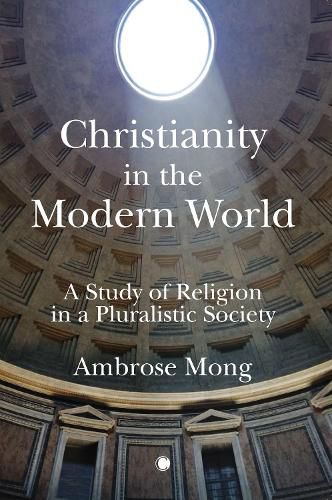Readings Newsletter
Become a Readings Member to make your shopping experience even easier.
Sign in or sign up for free!
You’re not far away from qualifying for FREE standard shipping within Australia
You’ve qualified for FREE standard shipping within Australia
The cart is loading…






The influence of religion on culture is as strong as ever, but the shape of that influence is unique in today’s pluralistic society. In Christianity in the Modern World, Ambrose Mong examines critically themes of religious commitment and tolerance, attitudes towards other religions, and the sociological aspects of religion and inter-religious dialogue. He provides an overview of factors that challenge traditional religion, from the relationship between monotheistic and polytheistic beliefs to the history of tolerance and intolerance in the church and the future of secularism.
Following the global ethics formulated by the late Hans Kung, Mong also engages with the dialogue between Jurgen Habermas and Joseph Ratzinger to provide an extensive defence of the importance of inter-religious dialogue, with particular relevance to multiple religious belonging in the Asian context. Scholars of world religions will find Mong’s analysis compelling, while students will find his introduction to the historical dialectics underlying many of today’s tensions illuminating.
$9.00 standard shipping within Australia
FREE standard shipping within Australia for orders over $100.00
Express & International shipping calculated at checkout
The influence of religion on culture is as strong as ever, but the shape of that influence is unique in today’s pluralistic society. In Christianity in the Modern World, Ambrose Mong examines critically themes of religious commitment and tolerance, attitudes towards other religions, and the sociological aspects of religion and inter-religious dialogue. He provides an overview of factors that challenge traditional religion, from the relationship between monotheistic and polytheistic beliefs to the history of tolerance and intolerance in the church and the future of secularism.
Following the global ethics formulated by the late Hans Kung, Mong also engages with the dialogue between Jurgen Habermas and Joseph Ratzinger to provide an extensive defence of the importance of inter-religious dialogue, with particular relevance to multiple religious belonging in the Asian context. Scholars of world religions will find Mong’s analysis compelling, while students will find his introduction to the historical dialectics underlying many of today’s tensions illuminating.